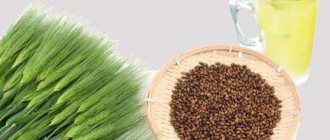Origin story
The possibility of producing such a drink was first discussed at the end of the 19th century. However, the production of coffee bags began only in 1909. Later, the accelerating pace of life required its release on a large scale, because a more practical drink cannot be imagined - the convenient packaging allows you to always have it on hand.
At the same time, sugar began to be added to instant coffee and the next step was the production of a modern drink, to which cream was added to soften the bitterness of caffeine.
History of instant coffee
The lead in the production of instant coffee belongs to a British citizen who lived in Guatemala and produced a product of very unpleasant taste and dubious quality under the brand name “Red E Coffee”.
The impetus for the creation of instant coffee production technology was the fact that at that time there was an oversupply of coffee beans that were lost in warehouses due to the low purchasing power of people.
This was in the early thirties. And already in 1938, the Nestle company began producing the instant drink “Nescafe”, most of which was intended for the needs of the American army.
Coffee, which requires only boiling water to prepare, has gained immense popularity among soldiers. And after returning from service, they continued to buy it in local stores.
Currently, the variety of instant drink varieties cannot be described in one article, but they are all divided into several groups.
How and from what instant coffee is made is a question that interests many drink lovers.
What does the drink consist of?
It's no secret that three-in-one coffee has a complex composition, usually consisting of more than 10 components. The basis consists of only 3 components:
- instant coffee,
- vegetable cream,
- sugar.
It is ideal when all 3 basic components - coffee, cream, sugar - are contained in the composition.
Most of the list of ingredients indicated on the packaging consists of vegetable cream. Their development made it possible to obtain a dry product instead of the usual liquid consistency, which is convenient to add to packaging. In addition, the shelf life of this ingredient has increased significantly. In appearance, dry cream is very similar to natural cream, although in reality it is vegetable fat.
The drink recipe is carefully designed so that the ingredients responsible for tartness, sweetness, and flavor characteristics are harmoniously combined with each other. A low-quality coffee drink may contain coffee in the last place, and some examples may not contain it at all. Therefore, you can often observe deception when “natural coffee” is indicated on the packaging, but there is absolutely no evidence of it in the composition.
Benefit or harm?
No one doubts the convenience of 3-in-1 bags. Fill it with hot water and you're done. At work, on a hike, and finally in the army—portioned bags of coffee with sugar and cream have found their place and their fans everywhere.
According to experts, it won’t be a big problem if you sometimes drink packaged coffee instead of natural coffee. Of course, it contains a lot of sugar, contains trans-isomer fatty acids (in vegetable cream) and other substances that are not very useful for humans.
But a high-quality semi-finished product, consumed in small quantities, will not harm your health. And you can find good quality portioned coffee in stores, there is no doubt about it. It is enough to get acquainted with the materials of specialized magazines or websites to be convinced: there are manufacturers whose products receive high marks from experts.
Is three-in-one coffee harmful?
Of course, 3 in 1 coffee cannot replace a natural drink either in taste or in its effect on the body. The packaged analogue is more convenient both in transportation and in preparation, but it is not recommended to drink it every day. Don't forget that it contains a lot of sugar and trans fats. At the same time, doctors claim that consuming high-quality semi-finished products in reasonable quantities will not cause significant harm to health. As they say, everything is good in moderation.
Milkshake with coffee
Coffee is a tonic drink that energizes the body.
At the same time, the packaged analogue contains it in minimal quantities and has virtually no effect on alertness.
But it contains much more calories and may well contribute to weight gain. For example, one serving of McCoffee contains 1440 kcal.
There are practically no contraindications to this drink. Of course, you should use instant coffee with caution if you have diabetes. Otherwise there are no restrictions. There is no clear answer as to whether it is possible to drink it during pregnancy. As a rule, doctors recommend limiting the consumption of natural coffee, as it increases heart rate. At the same time, the soluble analogue contains caffeine in small doses, so it definitely won’t harm pregnant women. However, the presence of artificial additives in the composition is alarming and it is better to reduce the consumption of this drink to a minimum.
Palm drink
It is assumed that the 3-in-1 coffee drink contains milk or cream. Naturally, in dry form. In practice, the dairy function is performed by analogues of cream based on milk fat substitutes and other tropical fats. 6 out of 7 manufacturers do not indicate components that suggest the content of milk fat, and a study of the fatty acid composition confirms their absence. But in “BonCafe” whole milk powder is indicated and it comes in second place in the composition. However, the examination showed: there is no milk fat in it. The fatty acid composition of this sample is characteristic of palm oil. Microstructural analysis also showed no evidence of milk fat in this sample.
In addition, a high amount of trans fatty acid isomers was found in this sample - 9.4%. This proportion does not meet the safety requirements for milk fat substitutes. For this, the BonCafe sample was included in the organization’s “Black List”.
There are trans-isomers of fatty acids in the samples of Jacobs, Express coffee mix plus+, MacCoffee The original coffee mix, Nescafe Classic, Clever, but in a much smaller volume.
Article on the topic
Let's separate the grains from the lies. Ground coffee examination results
Varieties of coffee 3 in 1
There are a large number of types of coffee bags on the market, which differ in both flavoring additives and components. Three groups of drinks can be distinguished:
- containing natural grains,
- created on the basis of chicory,
- drinks made from caffeine substitutes (acorns, chestnuts, cereals, etc.).
The most popular among manufacturers are:
- Nescafe;
- Jockey;
- Golden Eagle;
- Jacobs;
- Petrovskaya Sloboda.
Each brand offers consumers drinks with the addition of different flavor accents: cinnamon, nuts and even rum. So everyone can choose coffee to suit their taste and mood.
The Golden Eagle trademark is the first manufacturer to launch products on the Russian market. Its drinks vary in strength and the presence of flavoring additives. The low cost makes this brand popular, but when compared with other brands, Golden Eagle is very inferior in quality.
Three-in-one coffee from Jacobs has a richer taste and aroma, despite its softness. It is less sweet and more like natural coffee, and the latter is present in the composition. In addition to coffee drinks, Jacobs also produces instant tea bags. The packaged Vietnamese drink G7 can be considered the most natural and strongest - it will appeal to coffee lovers more than others. However, the high price makes it less popular among its analogues.
Obvious facts about the benefits of coffee or for those who are “FOR”
- One of the most obvious and huge “FOR”, I would like to first of all note the obvious benefit of coffee - it reduces the risk of cancer, such as:
- Liver cancer. This fact was examined and proven by Italian scientists. An analysis of the results of 16 studies was carried out, as a result of which it was found that drinking coffee reduces the risk of liver cancer by 40%, and if daily coffee consumption is reduced to 2-3 cups, the risk is reduced by more than 50%.
- Skin cancer. This fact was proven based on 20 years of research, during which it was found that it is the caffeine contained in the drink that helps reduce the risk of skin cancer, and in women the effect was much more noticeable than in men - 21% versus 10%, respectively.
- Bladder cancer risk. Scientists have proven that the risk of bladder cancer in smokers is 7 times increased, but if they actively consume coffee, the risk is reduced by 50-60%.
As scientists have proven by conducting biochemical tests, coffee enhances antioxidant protection and has an anti-carcinogenic effect on all of the listed organs, thanks to which coffee protects against cancer. True, there is a condition - at least 3 cups per day.
- Regular coffee consumption reduces the risk of diabetes. Moreover, this time a more effective impact is on the stronger half of humanity.
- In addition, the benefits of drinking coffee include the ability to stimulate weight loss. It has been proven that drinking 1 cup of coffee makes fitness classes one third more effective at burning extra calories. Coffee forces the body to receive energy not from carbohydrates, but from burning fat, which achieves this effect.
- Many studies by scientists from different countries have shown that the benefits of drinking coffee include reducing the risk of other common diseases, such as:
- Asthma;
- Parkinson's disease;
- Cholelithiasis;
- Cirrhosis of the liver;
- Heart failure;
- Atherosclerosis;
- Migraine
And some others.
- Coffee in men increases reproductive function by increasing sperm activity.
Of course, research and the search for other beneficial properties of coffee do not end there. Soon, I am sure, other, no less important, beneficial effects on the body will be discovered, providing tangible benefits from drinking coffee .
Which coffee to choose
Since the technology for creating a drink from different brands is almost identical, when choosing, pay attention to the product packaging and its composition. First of all, check the integrity of the bag. If there is damage on it that violates the seal, this coffee is not suitable for consumption.
Study the composition carefully. The best drink will have coffee at the top of the ingredient list. If it is not observed there, then you have a low-quality semi-finished product. To understand which drink is better, it is worth trying several varieties, because each of us appreciates different properties in it.
Several arguments "AGAINST"
- As I already said, regular consumption of coffee in high doses causes the body to become addicted to caffeine, due to the depletion of nerve cells, and in order to achieve the same effect, many begin to increase the dosage, as a result of which it becomes increasingly difficult for the body to refuse the stimulant. And if after this you still decide to give up coffee, this can cause very unpleasant consequences:
- Headache;
- Increased fatigue and drowsiness;
- Lack of mood, even depression;
- Dizziness;
- Depression
And so on.
Agree that such consequences are a very heavy price to pay for an irresponsible approach to excessive coffee consumption.
In addition, consuming caffeine in large quantities greatly depletes the nervous system, which can cause stress, psychosis, paranoia and sudden outbursts of unreasonable aggression. And the notorious caffeine is to blame for all this.
- Coffee increases the stress on the heart, stimulating its action, which causes an increase in pulse and heart rate. Because of this, blood pressure increases. Such an impact can have an extremely detrimental effect on the health of people suffering from diseases of the cardiovascular system. But that's not all! If you don’t even notice heart ailments, this does not mean that coffee will not harm you. Regular consumption of coffee can trigger the appearance of an illness that was hidden deep inside.
- Coffee interferes with the absorption of microelements important for the body, which can lead to serious consequences. These microelements include:
- Calcium, which is essential for healthy teeth and bones;
- Potassium and magnesium. Coupled with the harmful effects of caffeine on the cardiovascular system, the lack of these microelements significantly accelerates the development of heart disease;
- In addition, vitamins B1, B6 and sodium...
- It is especially worth highlighting that coffee is strictly contraindicated for pregnant women and children. This is very reasonable. Considering the above negative impact factors, you can immediately understand how this can harm the fetus. In addition, drinking coffee in large quantities (3-4 cups of coffee per day!) can lead to the death of a child. When drinking coffee, children are most often born premature and have congenital diseases. In addition, in most cases, the child is already susceptible to coffee addiction.
I think this seems more like an attempt to prevent a certain group of people from drinking coffee, rather than a clear contraindication for everyone. Well, we've looked at the main cons. Well, now let's move on to the more positive part of this article.











